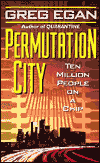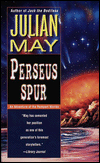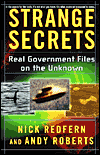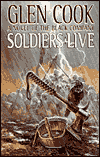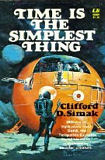
Time is the Simplest Thing, by Clifford D. Simak
Book Review by Paul Weiss
The story opens in a distant future on earth - so distant, in fact, that space travel is only a memory of the past. After countless attempts, man has begrudgingly acknowledged itself defeated by the insurmountable difficulties of travel to the stars. But, in the attempt, mankind has rediscovered and refined a long-lost talent - paranormal kinetics, a form of telepathy by which gifted individuals - called "parries" - can "travel" to the stars and experience with their minds all that other worlds have to offer. Fishhook, a corporation set up to develop, market, sell and profit from the myriad wonders the telepathic travelers find has succumbed to the greed of a monopoly. It now secretly works at promoting a global belief that these abilities are somehow abnormal, twisted or, even worse, represent a perverted, evil magic as opposed to a normal but seldom used human talent.
During an otherwise routine exploration, one of the parries, Shepherd Blaine, inadvertently "trades minds" with an alien intelligence. In more modern sci-fi terms, I was put in mind of a permanent Vulcan mind meld. Coming to the realization that he now has access to virtually all of the accumulated knowledge and wisdom of the galaxy, that he can simply will himself bodily through space and time, and that he is no longer even entirely human, Blaine flees Fishhook. He attempts to reconcile himself and his newly discovered abilities and knowledge with the visceral hatred and fear he encounters in the heartland of Simak's stomping grounds, the US Midwest.
In one chapter, the irony in Simak's chilling portrayal of a frightened and hateful lynch mob trying to pull Blaine out of a local jail to string him up is extraordinary. Simak didn't dress his mob in white hoods and robes carrying burning crosses, but there was no question in my mind of the picture he was painting. The irony arose somewhat later when Simak took an opportunity to remind his readers that the US was formed as a result of the Puritan's fleeing that same type of prejudiced, bigoted persecution and hatred. As an aside, I wouldn't think that Simak had any particular subliminal message in mind when he created Fishhook but, in this modern world, one can't help but be concerned about the perils of allowing untrammeled corporate growth to blossom into pure monopoly.
This is a thoroughly enjoyable tale from the 50s and 60s classic pulp sci-fi era and a wonderful example of Simak's fertile imaginings as to how time travel might be experienced in the future. "Time is the Simplest Thing" is pretty clearly dated and doesn't travel into today's world quite as well as some of his other works but it's a fast-paced thoroughly enjoyable read nonetheless.
|
Click here to buy Time is the Simplest Thing, by Clifford D. Simak on Amazon
|
Time is the Simplest Thing, by Clifford D. Simak on Amazon

| More Books You Might Like |
| Comments on Time is the Simplest Thing, by Clifford D. Simak |
| There are no comments on this book. |
